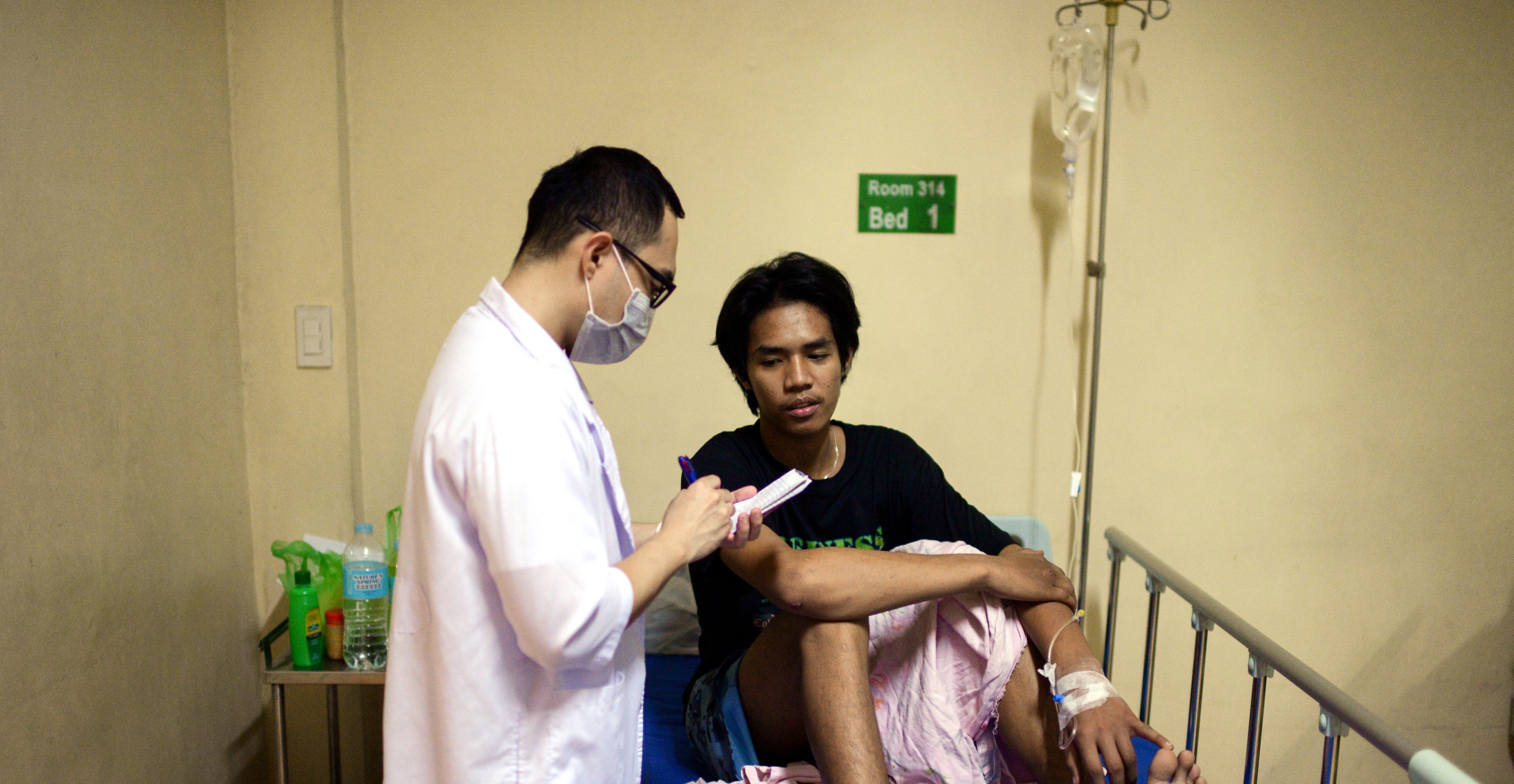How leaders can harness the power of finance and technology for social good

We need a commitment to value-driven behaviour such as Salesforce and GAVI’s COVAX's platform to fairly distribute two billion COVID-19 vaccines to 190 countries by the end of 2021. Image: REUTERS/Danish Siddiqui
- A new imperative around inclusive growth is emerging.
- A cross-sector movement that combines mindset shifts with technology and financing is leading the way.
- Business leaders will need to cultivate 'businessworthy' mindsets to make building a new era of inclusion and sustainability a reality.
The COVID-19 pandemic has undone progress made on the Sustainable Development Goals (SDGs). Yet, social innovation during this time is accelerating our ability to transform the way that businesses create value for society in the future. A new imperative around inclusive growth is emerging.
International private-sector investment in developing economies fell by 30% in 2020, with the poorest countries left grappling with pre-2015 levels of SDG investment activity.
With a highly uncertain outlook for the SDGs, the world is facing a watershed moment on how to rebuild a future that works for the 99%.
A cross-sector movement that combines mindset shifts with technology and financing is one way to start accelerating progress toward a sustainable future for all.
When the world’s leaders gather in Singapore this summer to address global recovery from the pandemic, the World Economic Forum's agenda cannot be business as usual. In fact, even prior to the COVID-19 pandemic, women and underserved communities were being left behind by capital markets in an alarming way.
Finance and technology are back at the core of this year’s agenda, but how will the discussion change in the face of the COVID reset, and do business leaders have the necessary 'businessworthy mindsets' to build a new era of inclusion and sustainability?
Business for Peace devised the term "businessworthy" as a valuation to describe value-driven business behaviour. To be businessworthy is to apply one’s business energy ethically and responsibly with the purpose of creating social as well as economic value.
Beyond business as usual
While investments in SDGs have fallen well below pre-2015 levels, with Greenfield investment in SDG sectors in developing and transition economies now 27% lower than before 2015, that does not mean that we are starting from zero.
Important advancements in the Fourth Industrial Revolution and in impact investing have demonstrated how technology and finance can be harnessed for the world’s poorest.
And now more than ever, business leaders have the responsibility to change the course of widening inequality – especially in the wake of the COVID-reset – and help democratise access to capital for social good.
Glimmers of hope
There are glimmers of hope in how finance and technology are being used together to help investors and businesses respond effectively to the needs of the world’s poorest. These signs of innovation and collaboration can form the foundation for COVID-resilient futures —an agenda that can truly outlast the COVID-19 era.
Through global platforms like the World Economic Forum’s COVID Response Alliance for Social Entrepreneurs, or Business for Peace Foundation’s Future of Business programme, businesses are finding new ways to advocate for a sustainable future.
Through the WEF COVID Response Alliance for Social Entrepreneurs, organisations like Salesforce and Impact Investment Exchange are collaborating to mobilise resources and actions, and support social entrepreneurs. This way, they can be critical first responders to the COVID-19 crisis.
Salesforce.org has helped over 49,000 non-profits, educational institutions and philanthropic organisations to drive progress across all the SDGs using technology.
By listening to our communities, and giving them access to the COVID-19 Resource Center on the AppExchange, we have helped them pivot to manage the health and safety of their constituents and students and keep their operations running.
Impact Investment Exchange is leveraging a digital impact verification tool, IIX Values, which helps investors and businesses to listen directly to the women and underserved communities impacted by finance. It turns their voices into information that investors and businesses can use to make better decisions, allocate capital and assign financial value to social and environmental impact.
Bringing together 82 global leaders, the WEF COVID Response Alliance is just the beginning of a larger movement to imagine a future in which women, the environment and underserved communities seen as pieces of the COVID-resilience puzzle, by businesses and investors alike.
A critical mass of businessworthy actions
But these breakthroughs are the mere foundations; we need to ensure that innovations in technology and finance are applied to solve the problems of the 99%.
Without the governance, incentives and leadership of the world’s economic leaders, these solutions will be a drop in the ocean for inclusive growth.
The Forum forecasts that economic parity for women will take 170 years, and this trend has been exacerbated by the pandemic. The time is now to intervene and disrupt these negative trends in the wake of the COVID-reset.
Business leaders are already on board through initiatives like Business for Peace’s Build Back Better Business call to action, where award winners such as IIX’s CEO Durreen Shahnaz to Laerdal Medical’s Chairman Tore Laerdal, and Imagine Co-Founder Paul Polman are pushing key themes forward. These include investment and support for SMEs and underserved communities, strengthened participation of women in the economy, and increased attention to racial harmony and inclusion.
Salesforce is powering GAVI’s COVAX country-engagement platform, which will help them manage critical information and fairly distribute some two billion COVID-19 vaccines to 190 countries by the end of 2021.
Moving forward, it is the obligation of leaders coming together through the Forum to drive the next era of sustainability by harnessing the power of finance and technology for social good.
Don't miss any update on this topic
Create a free account and access your personalized content collection with our latest publications and analyses.
License and Republishing
World Economic Forum articles may be republished in accordance with the Creative Commons Attribution-NonCommercial-NoDerivatives 4.0 International Public License, and in accordance with our Terms of Use.
The views expressed in this article are those of the author alone and not the World Economic Forum.
Stay up to date:
COVID-19
Related topics:
Forum Stories newsletter
Bringing you weekly curated insights and analysis on the global issues that matter.
More on Health and Healthcare SystemsSee all
Mille Sofie Stenmarck Korsgaard and Daniel Holth Larsen
November 20, 2025






